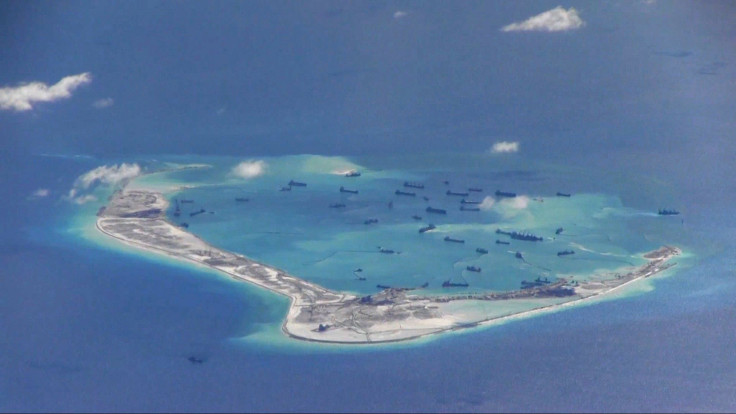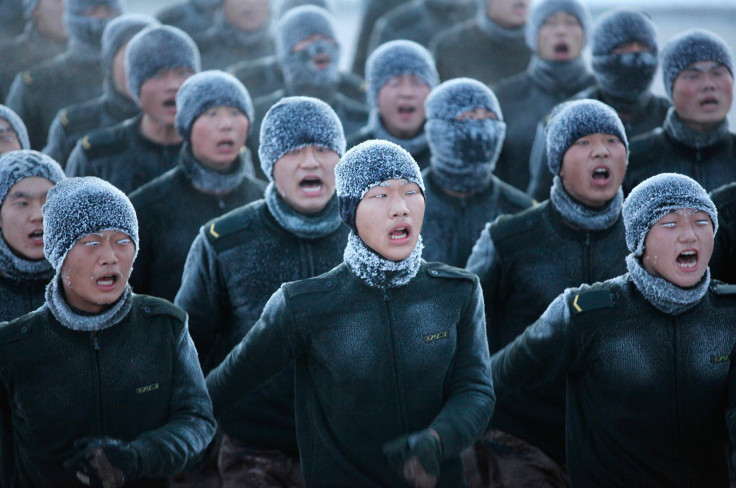China’s President Xi Says Army Must Be Stronger, Remove Stain Of Corruption

SHANGHAI -- China’s President Xi Jinping has called for a strengthening of management and training in the Chinese military, to ensure its loyalty to the ruling Communist Party, and to wipe out the “damaging” impact of a recent corruption scandal.
Speaking at a meeting with senior military officials, ahead of China’s Army Day on Aug. 1, Xi, who is also head of China’s Central Military Commission, said this would help to “achieve the goal of a stronger army,” according to the official Xinhua News Agency.
He said soldiers, and officers, must be “toughened in real combat conditions to fear neither hardship nor death.” And he stressed that officers must take the lead in setting an example to soldiers to combat corruption in the military.
China recently published a new defense white paper, which spelled out a wider role for the military, in keeping with the nation’s growing economic influence: it laid out a strategy of “active defense,” including a greater reach for China’s navy, and an emphasis on upgrading technology, to defend China’s sovereignty in space, and cyberspace, as well as on the battlefield.
Growing tensions with neighboring countries over the South China Sea, and over Japan’s plans to revise its constitution to allow its military to take a more active role internationally, have also heightened the focus on China’s military.

However, authorities have identified various obstacles to upgrading the military, analysts say: last year the army was rocked by a promotions-for-bribes scandal, which led to the arrest of the country’s top military officer, Xu Caihou, though Xu died before he could be brought to trial.
Xu’s “violations of discipline and law [had] caused profound and thorough damage” to attempts to strengthen the army, Xi said.
Officials have more recently also accused some in the army of obstructing attempts to clean up corruption.
Xi said the military must purge itself of “the influence of the Xu Caihou case” in “thought, politics, organization and work style." And he said better education was required, to ensure that soldiers “recognize the Party’s absolute leadership over the army.” He added that they should embrace and maintain “the glorious traditions and excellent working style of the old Red Army.”
The reference to the pre-revolutionary communist army that brought the Communist Party to power in 1949 appears to be a conscious attempt to revive the spirit of an era when the army was seen as unquestioningly loyal to the party. Xi has also sought to assert control over the army with a shakeup of officials, after his predecessor Hu Jintao struggled to keep the military in check, according to some accounts.
Xi whose father was a famous general, and whose first job was in the military’s head office, is believed to be keen to enhance the army’s status in Chinese society, as he seeks to emphasize the party’s legitimacy based on its revolutionary tradition, and to promote a return to traditional socialist values in a fast changing society.
In September he will preside over the nation’s first major military parade for more than five years, to commemorate the seventieth anniversary of the defeat of Japan’s armies on Chinese soil. And banners emphasizing the closeness of the people and army have recently appeared on the streets of major Chinese cities.

“I think we are seeing something of a militarization of life under Xi,” said Willy Lam, a professor of Chinese politics at the Chinese University of Hong Kong. “With the new defense white paper, and the public holiday for the victory parade, the government is stepping up efforts to encourage people to learn from the People’s Liberation Army, to see it as a role model,” Lam told International Business Times.
China has said its military is purely intended for defensive purposes, but the recent white paper stressed that in an increasingly complex world, China’s strategy of active defense means: “We will not attack unless we are attacked, but we will surely counterattack if attacked."
© Copyright IBTimes 2024. All rights reserved.






















